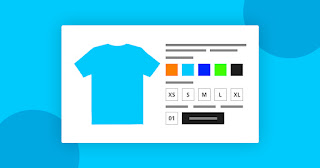Beyond Amazon FBA: Exploring 7 Unique Alternatives for E-commerce Success
Amazon FBA (Fulfillment by Amazon) has been the go-to choice for many e-commerce entrepreneurs and businesses looking to tap into Amazon's vast customer base and efficient logistics network. However, as the e-commerce landscape continues to evolve, savvy sellers are exploring alternatives to Amazon FBA to gain more control over their operations, reduce fees, and foster independence. In this comprehensive 1500-word article, we'll delve into seven unique alternatives to Amazon FBA, shedding light on the pros and cons of each option to help you make an informed decision.
Shopify + Oberlo
Shopify, paired with the Oberlo app, is a powerful alternative to Amazon FBA, particularly for entrepreneurs who wish to maintain full control of their e-commerce operations. Shopify provides the foundation for creating a customizable online store, while Oberlo assists in sourcing and managing dropshipping products.
Pros:
Complete Ownership: With Shopify + Oberlo, you have full control over your brand, website design, and product selection, ensuring your unique identity in the market.
Diverse Product Range: Oberlo allows you to choose from a wide range of products from various suppliers, giving you the flexibility to cater to different customer segments.
No Amazon Fees: You won't be subject to Amazon's referral, storage, or fulfillment fees, which can substantially impact your profit margins.
Cons:
Sourcing and Inventory Management: Managing suppliers and inventory can be more time-consuming and challenging than using Amazon FBA.
Marketing and Customer Acquisition: You'll need to invest more effort in marketing and customer acquisition compared to leveraging Amazon's existing customer base.
WooCommerce
For those who prefer a more hands-on approach, WooCommerce is an excellent alternative to Amazon FBA. It's an open-source e-commerce plugin for WordPress that allows you to build a highly customized online store. While it doesn't provide dropshipping options like Oberlo, it's a great choice for those who want to manage their inventory independently.
Pros:
Total Control: WooCommerce offers complete control over your e-commerce operation, from website design to product management.
Scalability: You can expand your store as your business grows without being limited by a platform's restrictions.
No Amazon Fees: You won't be subject to Amazon's fees, ensuring better profit margins.
Cons:
Higher Initial Setup: Building and configuring your online store on WooCommerce may require more technical expertise and effort.
Marketing and Customer Acquisition: As with Shopify, you'll need to invest in marketing to attract and retain customers.
BigCommerce
BigCommerce is a powerful e-commerce platform designed to help businesses build and scale their online stores. It offers various features for inventory management, customization, and marketing, making it a compelling alternative to Amazon FBA.
Pros:
Built-in Features: BigCommerce comes with integrated features for dropshipping, custom storefronts, and marketing tools, simplifying your e-commerce operations.
Customization: You can tailor your online store to reflect your brand and offer a unique shopping experience to customers.
Scalability: BigCommerce can accommodate your business's growth and changing needs.
Cons:
Monthly Costs: Using BigCommerce comes with subscription fees, and depending on your business size, these fees can add up over time.
Learning Curve: While user-friendly, it may still require some time to get accustomed to the platform's features.
Alibaba
If you're interested in importing and branding your products, Alibaba is a formidable alternative to Amazon FBA. Often referred to as the "Amazon of China," Alibaba is a global marketplace connecting buyers with manufacturers and suppliers worldwide.
Pros:
Direct Sourcing: Alibaba allows you to source products directly from manufacturers, which can lead to competitive pricing and greater control over product quality.
Branding Opportunities: You have the freedom to brand products as your own, enhancing your brand's identity.
Diverse Product Range: Alibaba offers a vast selection of products from different industries.
Cons:
Sourcing Challenges: Sourcing from overseas suppliers may present challenges related to language, time zones, and potential shipping delays.
Quality Control: Ensuring product quality and compliance with regulations can be more complex when dealing with overseas manufacturers.
Etsy
For entrepreneurs and artisans with a passion for crafting, vintage items, or unique handmade products, Etsy offers a specialized e-commerce platform that sets it apart as an alternative to Amazon FBA. Etsy caters to a niche market, focusing on artisanal and creative goods.
Pros:
- Niche Market: Etsy's niche focus attracts a specific group of customers seeking unique, handcrafted, and vintage items.
- Creative Freedom: Sellers can showcase their creativity and build a brand centered around their craft.
- Community: Etsy fosters a sense of community among sellers and buyers with shared interests.
Cons:
- Limited Product Range: Etsy's platform is tailored to handmade and vintage items, limiting the type of products you can sell.
- Competitive Pricing: Due to the niche market, competitive pricing may be challenging, and fees can affect profitability.
eBay
eBay, one of the early pioneers of online marketplaces, continues to be a popular choice for e-commerce. It stands out as an alternative to Amazon FBA, offering various selling options and a distinct auction-style listing format.
Pros:
- Variety of Selling Options: eBay provides a range of selling formats, from fixed-price listings to auctions, enabling you to adapt to different selling strategies.
- Large Customer Base: eBay boasts a substantial customer base, offering a vast potential audience for your products.
- Global Reach: eBay's global presence means you can reach customers worldwide.
Cons:
- Fees: eBay charges various fees, including listing and final value fees, which can impact your profitability.
- Auction Format Challenges: The auction-style format may not suit all product categories, and competitive bidding can influence final selling prices.
Conclusion
Amazon FBA has undoubtedly transformed e-commerce, but it may not align with every business's needs or preferences. Exploring alternatives provides an opportunity to diversify, gain more control, and potentially enhance your profitability. Whether you opt for Shopify + Oberlo, WooCommerce, BigCommerce, Alibaba, Etsy, or eBay, the key is to choose the alternative that aligns with your unique business goals and strategies. Each of these alternatives offers a distinct set of advantages and challenges, allowing you to tailor your e-commerce approach to your specific needs.
It's essential to conduct thorough research and consider your business's size, niche, and long-term objectives when selecting the most suitable alternative to Amazon FBA. Moreover, staying up-to-date with industry trends and continuously assessing the performance of your chosen platform is crucial for long-term success.




Comments
Post a Comment